After reelection, President Obama’s first State-of-the-Union speech stressed trade expansion. He was pushing two treaties, still being negotiated. The first, the Trans-Pacific Partnership (TPP), is close to completion, and the second, the Transatlantic Trade and Investment Partnership (T-TIP) is off to a good start, but is a long-term prospect.
In 2013, negotiations continued on both treaties. In addition, significant parts of the Doha Round of the WTO seemed to indicate progress. But the key to any trade negotiation is that the president needs a law passed to give him what used to be called “fast track” authority and now is called Trade Promotion Authority (TPA).
TPA’s critical element is that it prohibits Congressional amendments. Under TPA, Congress can reject the treaty, or approve it, but not amend it. TPA was created in 1974, when the Kennedy Round of GATT was ratified. It recognized that various non-tariff barriers had become greater slow-downs to trade than customs duties. Since 1974, no major trade bill has been passed without some sort of TPA.
TPA or “fast track” is essential for the president to complete negotiations. Negotiators for our trading partners would be foolish to sign off on a treaty unless they knew that the Congress could not amend it.
If any country’s concessions were changed, the treaty could become a liability to it. So, our partners’ best offers will only come after they are certain that the negotiations will not be changed. If Congress did amend any part of the completed negotiations, the whole package of give and take between nations would likely fall apart. It is worth recalling that the last time a trade bill was substantially amended in Congress was the infamous Smoot-Hawley Bill, which exacerbated and extended the Great Depression.
Throughout 2013, rumors about TPA circulated through the Congress as the leaders of the House Ways & Means Committee and the Senate Finance Committee were working with the president’s U.S. Trade Representative and others on a specific form of a TPA bill. At the end of last year, those leaders, not including the ranking Minority member of the Ways & Means Committee, but with the blessing of the USTR, announced their agreement on a TPA bill.
The president, key House Republicans, and key Democratic Senators were in agreement on that bill. So far, so good. A TPA bill would allow the Trans Pacific Partnership Treaty, said to be in its final stages, to be completed and ratified. In addition to its trade and economic benefits, TPP is the most prominent piece of the Obama “pivot to Asia,” his attempt to exercise more leadership in the area.
TPP is supposed to lead the region to our version of open, reciprocal trade rather than have the region move toward the Chinese mercantilist model.
But it only took a few days before the Senate Majority Leader, Harry Reid, blew the TPA, TPP, and our Asia policy out of the water. He doesn’t like TPA. We knew that. But, he also threatened to prevent a Senate vote on it this year. That’s bad news for the Republic, but also bad news for the president. His USTR has been working to assure negotiating partners that the president will get his TPA. Since the Reid threat, that story seems suddenly less reassuring.
So, if the Senate leader has his way, there will be no TPA, no TPP, nor any other trade bill this year. The press seems to assume that Reid is stifling the trade vote to protect his Senate majority in the November elections. That would be consistent with his previous actions in preventing any Senate votes on the budget for a couple of years, and in regularly loading up the “amendment tree.” Those ploys are intended to stifle any possibly embarrassing votes for his majority colleagues.
The Senate Majority Leader regularly assails Republicans for stopping legislative progress. So it is more than ironic that he has the biggest thumb in the legislative bottle. The feeble efforts of Republicans to defer Obamacare look like child’s play compared to the highly effective veto tactics of Senator Reid.
These kinds of games are never over until they are over, but the Reid veto appears to be convincing at this time. The president, if he really wants his Asia pivot and his TPP, is going to have to work a lot harder on them. Presidential spokespeople can make the pitch, but presidents have to make their own sales. That may not be enough, but nothing else will do it.
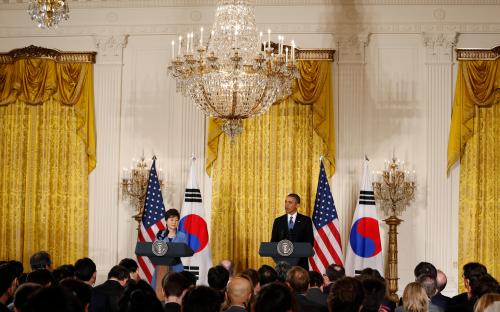
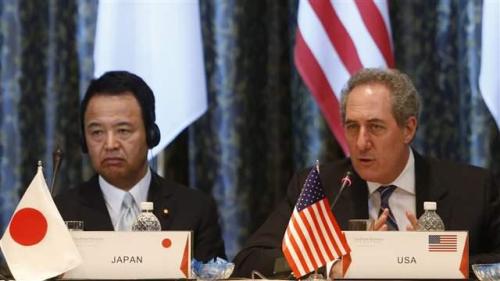
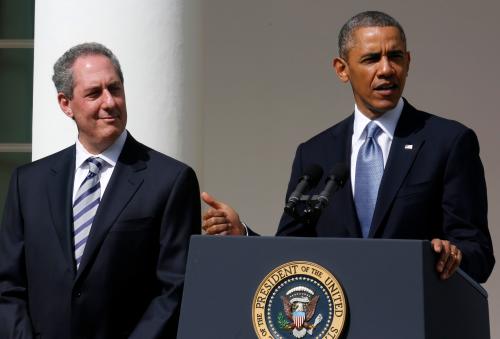
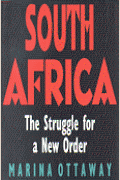
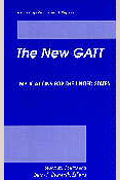
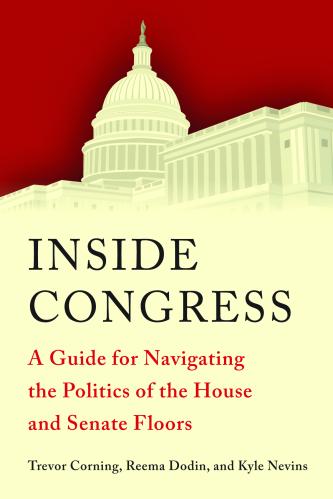

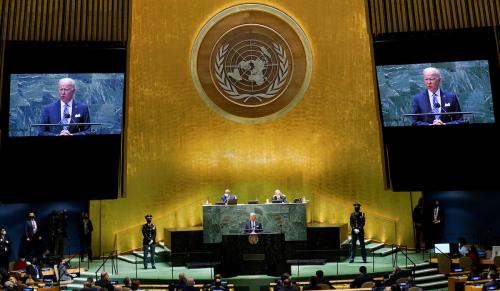

Commentary
Op-edThese Are The Deals That Only President Obama Can Close
February 10, 2014